Mallorca Global Mag witnesses the reopening of the berostar Selection Playa de Muro Village hotel
Mallorca’s hotels are being reinforced for a tourist season that promises to be outstanding, with a very stressed labour and housing market.
Virginia Servera | Photos: Piter Castillo e Iberostar.
It is ten o’clock on a Monday morning and part of the staff of the five-star Iberostar Selection Playa de Muro Village hotel has already been working for hours. For several days they have been racing against the clock to finalise the latest preparations for the opening of a tourist season that this year could break records. Optimism is in the air. When asked if this could be a historic summer, Marlena Koszewska, the Director of the property for the last four years, answers without hesitation: “I think so. Everything seems to indicate that we have a very successful summer ahead of us.”

Staff and budget
With an early Easter and a volume of bookings that exceeds all forecasts, Koszewska has been quick to “call up” her first spades, the section managers. It is up to them to manage the hotel’s opening days and gradually recruit the employees who will make up their teams. For this, the criterion of seniority always prevails. It seems the most reasonable thing to do.
The young director starts at the end of March with a closed budget that is approved the previous year from the head office and varies according to the estimated occupancy levels. This season’s budget has proved to be generous. One more reason to be motivated. Staff costs, refurbishments and investments, hotel products and supplies and any last-minute unforeseen events are covered by this item, which is managed with the characteristic diligence of someone who manages the household accounts with the clear goal of making ends meet. Solvency, a priority. As in any household, there are always unexpected expenses that disrupt planning. “In 2022, food inflation forced me to spend more money on cooking,” she says.
All hands on deck
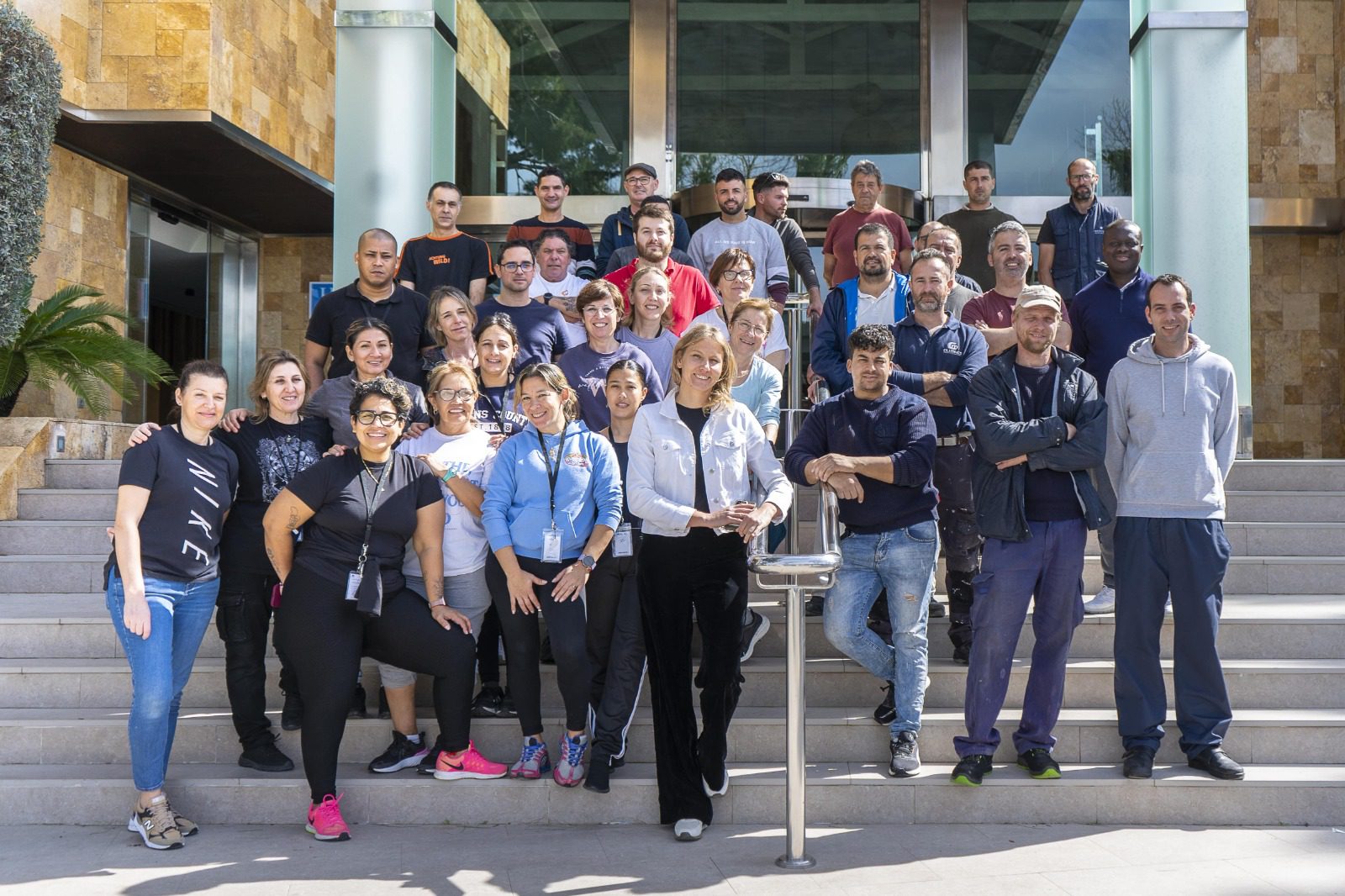
The same tranquillity that can be seen on Avenida de s’Albufera – still free from the hustle and bustle of coaches and hire cars – can be felt at the Playa de Muro Village when it has not yet opened to the public. Only the movement of the carriers disturbs the silence in the streets. This calm atmosphere has little to do with the hustle and bustle – not disorder – in the summer, when 195 workers serve almost 600 customers. So all the gears have to be working perfectly, says Koszewska, who proudly maintains that the percentage of returning customers (around 15 %) is on the rise. In this respect, “loyalty programmes are a boost”, she explains.
On the hotel’s exterior, the maintenance and gardening team is busy preparing the areas to make a friendly first impression. A fleeting conversation is enough to make you realise how helpful they are. While some are busy weeding, others are mowing the lawn or checking the pH of the pool water, which they work hard to keep crystal clear. The persistent coastal wind at Playa de Muro at the time of writing this report doesn’t make it easy.
Meanwhile, in the 202 luxuriously appointed rooms, the hotel maids are cleaning every nook and cranny after they have been closed for the five months during the low season. At this point, they still have the energy to joke: “If I’d known you were coming, I’d have put on a little make-up,” is heard from the corridor when they notice our presence. “Send us the photos,” they ask with laughter as they approach the lift. For the first time this summer, they will have elevating beds to lighten their workload. Weeks before, the Director has already “launched” all the supplies: towels, duvet covers, etc. Nothing is left up in the air. Nothing is improvised.
On the way to the bar, whose furniture is protected from the dreaded dust with sheets and plastic covers that give it a ghostly appearance, we pass a waiter carrying a pile of shiny textiles. As he would do with a customer, he politely gives way to us. Maribel Fluxà, the owner of the accommodation, explains at the doors of the buffet restaurant the sacrifice involved in getting everything up and running: “A good closing makes a good opening much easier”, she says from her experience.
Once in the kitchen, the chef Alberto Ridruejo gives us a warm welcome. The pedagogy of his explanations corroborates his passion for the trade. He is looking for colleagues with the same concerns; at the SOIB Job Day he has signed up four people for this season. Quite a success considering that his department is the hardest to staff. Ridruejo reveals the secrets to feeding hundreds of people: separate cold rooms to keep the food in optimal conditions, organisation and cleanliness are basic ingredients. He also has his own supply depot to ensure a quick supply of dry goods. While examining the condition of the floors, tiles and silicone, the Kitchen Manager says that he fantasises about a larger kitchen. Marlena smiles and with a knowing look declares: “It will be next”. The atmosphere of companionship and trust is total.
Active tourism
Three minutes’ walk from the Iberostar Selection Playa de Muro Village is the Iberostar Playa de Muro hotel, with which it occasionally shares staff and a canteen for employees. Faithful to the transparency shown throughout the tour, they open their doors to us at lunchtime. The aromas that reach us are comparable to those of any respectable restaurant and the comings and goings of workers of all categories confirm our suspicions. On the wall you can read: “Today is a good day to smile”.
The Director of the Iberostar Playa de Muro, Rosa Simó, says that cycling tourism is bringing the start of the season forward at this four-star hotel. Germans, Belgians and Swiss, in their majority, have been choosing Playa de Muro as the destination for their cycling trips since the end of February. Just in March they counted five thousand stays.
In terms of consumer profile, the Iberostar Playa de Muro has different requirements. At least until the end of May, when family tourism becomes predominant, says Simó, who presents the bike-friendly facilities with great satisfaction. There is no doubt that this is their main attraction. For this reason, from the very beginning, they have put a lot of effort into getting the bicycle garage, the repair shop, the gym and the semi-Olympic swimming pool where some of the athletes train. “They are demanding clients with regards to the food and they spend a lot on complementary offers”, says the manager. In the vicinity of the hotel, they are expanding their services with a specialised shop for cyclists and organised routes.
Shortage of labour and housing, a handicap
Marlena Koszewska points out that filling all the jobs in the hotel sector is a challenge today due to the high labour mobility triggered by the pandemic: “Last year it was already difficult. In fact, we had to delay the opening of one of our outlets because we couldn’t find any staff. Such is her concern that for this year she has decided to anticipate recruitment by assuming additional costs: “If I have a good CV, I force the budget. In fact, I’m going to take on a lot more staff than I should at the opening. We will have to deal with the holidays,” she says. The manager explains that the “loyalty” of the employees of the past has been left behind and that voluntary redundancies and leaves of absence have become a reality. She also regrets that staff are no longer as willing to work split shifts because of the high price of fuel: “They don’t want to make so many journeys by car”.
The price and lack of housing on the island are also an obstacle to attracting professionals from abroad. “I’m trying to rent flats in the surrounding area in case I have to launch national offers at some point, but the prices are sky-high,” says Koszewska, who does not consider the formula of blocking hotel rooms to accommodate workers to be a profitable solution. This practice, which originated in Mallorca with the tourist boom, is once again becoming commonplace among hotel chains to alleviate the housing problem. In order to retain their employees, some hoteliers even opt to buy flats or subsidise part of the rent, as in the case of Hipotels.

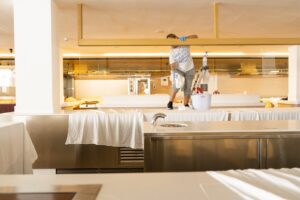
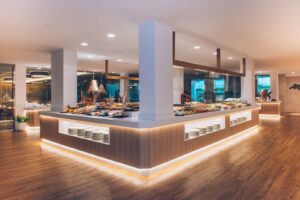
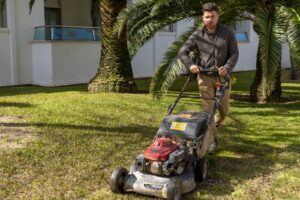

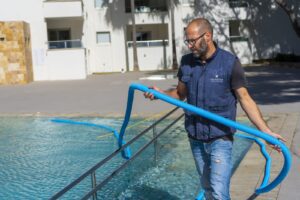
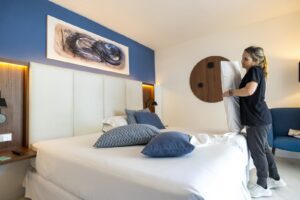
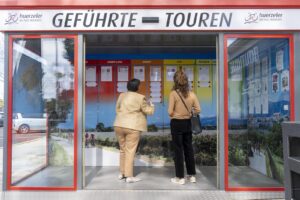

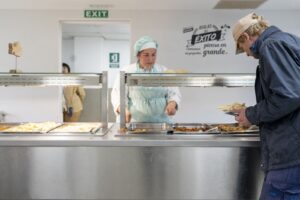
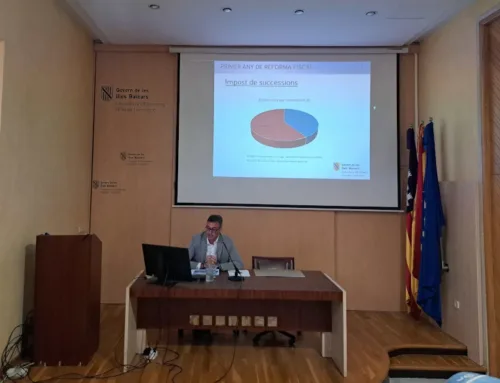
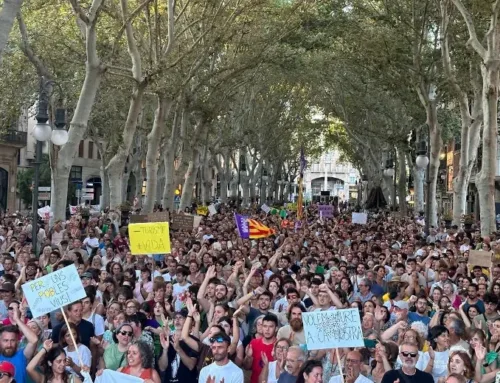
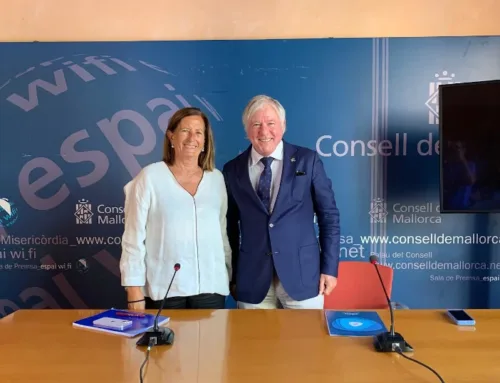
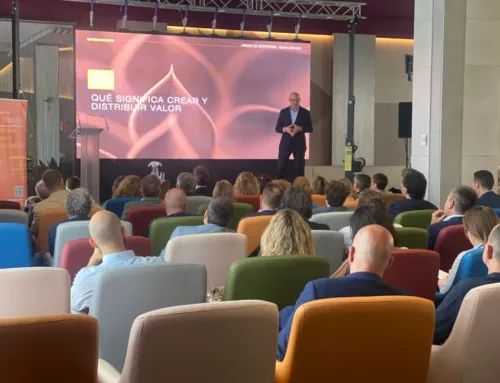


Leave A Comment